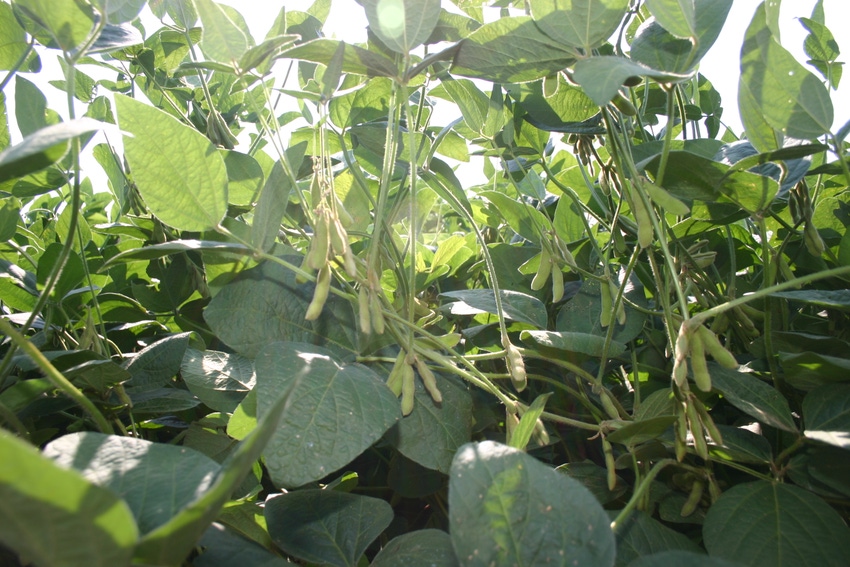
Fresh off meetings with international counterparts, leaders of the United Soybean Board (USB) and American Soybean Association (ASA) said there is broad agreement that oilseed producers must be united in providing for future global food needs.
The meetings were held in Paris as part of the sixteenth International Oilseed Processors Dialogue (IOPD), a three-day event held from June 30 through July 2. The U.S. delegation interacted with oilseed producers from around the world.
The International Soy Growers Association was also part of the dialogue. “That’s a group of farmers representing soybean producers in South America – Brazil, Argentina, Uruguay and Paraguay,” said Jim Call, USB chairman and soybean farmer from Madison, Minnesota. “We also met with soybean growers from the EU, Australia and Canada.”
The conversations, said Call, “were generally around GM approvals, new trade approvals and government regulations. We visited a farm in France and talked to the farmer about some of the concerns they have. It’s pretty obvious that some of the regulations happening in the EU are starting to spill over into the U.S. I know the South Americans are concerned about it eventually affecting them, too…
“It’s all about trying to have a dialogue and trying to keep profitability among oilseed growers around the world. We spoke a lot about sustainability, as well.”
Asked to elaborate on the “spill over” mentioned, Call again brought up the farm visit. “There were a couple of things mentioned. ... It looked like a very progressive farm, a father and son operation using the newest technology. They were actually harvesting wheat and said their yield was averaging 126 bushels per acres. I’d love to have those yields here.”
The French farmers would “love to have GMO crops over there,” said Call. “Now, this was only one farmer we talked to so it may not encompass all farmers there. But he said some of the issues they were having with production, herbicide and pest problems, would be eliminated if they were allowed to grow GMOs.
“Something that stuck in my mind was they brought up the fact that there are government regulations being proposed … that would cut fertilizer application practices in half. He said those 126-bushels wheat yields would go away if that happened.
“I brought up the fact that what happens in Europe eventually trickles (to the United States). We’re dealing with the same (non-government organizations) pushing this type of legislation. They�’re active here in the United States and have become very prevalent to U.S. agriculture in the last couple of years.”
Being proactive
Talks were inclusive said Ray Gaesser, ASA president and soybean farmer from Corning, Iowa. “We talked about ways to help each other and improve the markets overall so we can all benefit. There was talk about technology approvals – in China, in particular, and the EU.”
Gaesser also brought up the farm visit as educational. “We asked, ‘So, 20 years ago what do you wish you’d have done to avoid some of the unfortunate events and consumer attitudes towards biotechnology?’ They all said they wished they’d been more proactive in sharing the farmers’ message and value of the way we farm and why we do what we do.”
While everyone is striving to get as much market share as possible, there is also acknowledgement in the industry that cooperation is necessary.
“One of the things I got out of this is even though all oilseed producers are in competition -- the palm, the soy, the rapeseed – we all realize that we need to work together to meet the increase in demand we’ll have for oil in the near future,” said Laura Foell, USB Meal Action Team Lead and soybean farmer from Schaller, Iowa. “That’s not only in China but other countries too.
“In Europe, they’re going to be writing a new ‘farm bill.’ They will no longer have subsidies for any food crop biofuels. Those will be eliminated by 2020.”
More information at U.S. Soybean Export Council.
About the Author(s)
You May Also Like




